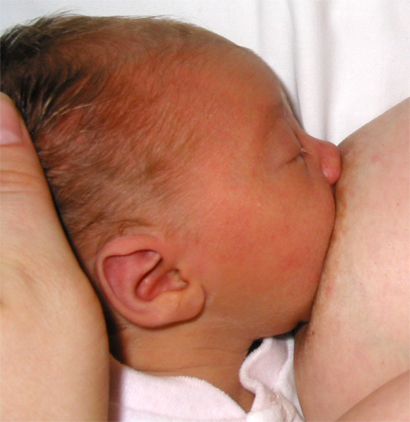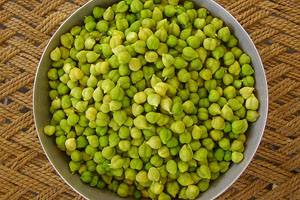
Photo courtesy Produnis, Wikimedia Commons
A series of reports from the annual meeting of the Society for the Study of Reproduction reinforce the growing notion that our health is affected by the actions and choices of our forefathers—or foremothers.
It’s all about epigenetic inheritance: the nongenetic variations acquired during the life of an organism that can be passed on to offspring.
We already know—and I’ve already written—that fruit flies exposed to certain chemicals transmit changes down at least 13 generations. And that people malnourished in adolescence transmit higher rates of heart disease and diabetes to their children and even their grandchildren.
Now the following studies demonstrate how maternal nutrition, protein intake, and fat in the diet cause epigenetic changes in developing fetuses, with long-term health consequences. Some changes occur before pregnancy, some during—some don’t manifest for a long time:
- Mouse studies suggest that subtle differences in maternal metabolism have long-lasting effects. When embryos were transferred from a diabetic mouse to a nondiabetic mouse, all kinds of birth defects ensued (neural tube defects, heart defects, limb deformities, and growth defects in offspring)—suggesting we need to redirect ideas about maternal health to prior to pregnancy.
- Maternal nutrition at the time of conception alters fetal development. Sheep and rodent studies reveal that offspring of mothers with vitamin B12 and folic acid deficiencies are fatter, become insulin resistant, and have higher blood pressure by the time they reach middle-age—proving that early molecular changes may not manifest for many years.
- Low protein levels in female mice during the first few moments of conception caused abnormal growth, cardiovascular disease, high blood pressure, and jumpy behavior in their offspring. They also grew bigger, extracting as many nutrients as they could to compensate for poor nutrition in the womb.
- According to epigenetic theory, changes in the genome can happen at any time through the impact of environmental factors on the expression of genes over time. One of the most critical periods is early life when epigenetic memories are created that may impact a person’s susceptibility to disease later in life. These “memories” may lie dormant until an environmental trigger brings them to the surface and modifies disease risk.













